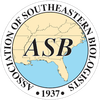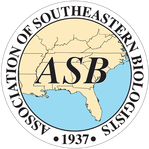ASB 2021 Meeting - Events
Funding Your Research - Live Panel
Day/Time - Friday March 26, 2:00 - 3:00 PM
Description - Join representatives from the National Science Foundation, Georgia Sea Grant and American Philosophical Society as they discuss funding opportunities and best practices in grant proposal preparation.
Moderators
Day/Time - Friday March 26, 2:00 - 3:00 PM
Description - Join representatives from the National Science Foundation, Georgia Sea Grant and American Philosophical Society as they discuss funding opportunities and best practices in grant proposal preparation.
Moderators
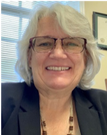
Dr. Holly Boettger-Tong is a Professor in the Department of Biology at Wesleyan College in Macon, GA. Her research interests are in the area of reproductive and developmental biology and she has supported 19 undergraduate Honors Theses in her lab. Holly has served as PI for an NSF S-STEM and an NSF CCLI award, in addition to serving as a Co-PI on a GA Math Science Partnership (MSP) grant with Bibb County Public Schools. Prior to her arrival at Wesleyan, Holly was an Assistant Professor in the Department of Obstetrics and Gynecology at Baylor College of Medicine; she did her Postdoctoral fellowship at the University of Texas Medical Center, Houston, in the Department of Pharmacology. Holly earned her M.S. and Ph.D. in Biology from the University of Alabama, Birmingham and has served ASB as Chair of the Education Committee (2016-present) and as an At Large Member of the Executive Committee (2018-present).
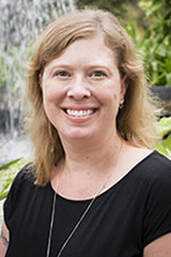
Dr. Heather Joesting is an Associate Professor of Biology at Georgia Southern University (GSU) in Savannah, GA. Her research program focuses on coastal plant ecology and nature-based infrastructure for coastal management, and she also serves as the Senior Scientist for Georgia Southern’s Sustainable Aquaponics Research Center. She has worked with over 35 GSU undergraduate research students on projects in both coastal plant ecology and aquaponics, and her lab currently supports a Master’s student. Heather received her M.S. from Ohio University in Athens, OH and her Ph.D. from Wake Forest University in Winston-Salem, NC. Before her position at Georgia Southern, she completed her post-doctoral work at the University of Southern Mississippi’s Gulf Coast Research Laboratory in Ocean Springs, MS. Heather has been an active member of ASB since 2014 and has taken 10 GSU undergraduate research students to present at ASB meetings. She currently serves ASB as Chair of the Poster and Presentation Awards Committee and Chair of the Affiliate Awards Coordinating Committee (2020 – present) and as an At Large Member of the Executive Committee (2020 – present).
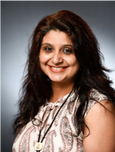
Panelists
Dr. Mona Behl serves as associate director of NOAA's Sea Grant program at the University of Georgia. In her current role, she collaborates with the director to provide administrative and financial leadership to Georgia Sea Grant, direct its research and fellowship portfolios, and ensure the quality; relevance and impact of Sea Grant activities in Georgia. Behl is passionate about improving access, engagement and leadership development of historically marginalized people in geosciences. She co-led the development of Sea Grant's 10-year diversity; equity and inclusion vision plan, Sea Grant’s community-engaged internship program, and American Meteorological Society’s Early Career Leadership Academy. She also serves on the leadership board of Earth Science Women’s Network, and on the executive committee of NOAA’s Grays Reef National Marine Sanctuary. Behl earned her bachelors and master’s in Physics (Honors) from Panjab University (India), and doctorate in Physical Oceanography from Florida State University.
Dr. Mona Behl serves as associate director of NOAA's Sea Grant program at the University of Georgia. In her current role, she collaborates with the director to provide administrative and financial leadership to Georgia Sea Grant, direct its research and fellowship portfolios, and ensure the quality; relevance and impact of Sea Grant activities in Georgia. Behl is passionate about improving access, engagement and leadership development of historically marginalized people in geosciences. She co-led the development of Sea Grant's 10-year diversity; equity and inclusion vision plan, Sea Grant’s community-engaged internship program, and American Meteorological Society’s Early Career Leadership Academy. She also serves on the leadership board of Earth Science Women’s Network, and on the executive committee of NOAA’s Grays Reef National Marine Sanctuary. Behl earned her bachelors and master’s in Physics (Honors) from Panjab University (India), and doctorate in Physical Oceanography from Florida State University.
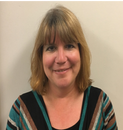
Linda Musumeci was born and raised in Philadelphia. After receiving a B.A. in International Relations from St. Joseph’s University, where she also minored in History and French, she moved to Chicago and earned an M.A. from the University of Chicago, also in International Relations, where she focused on international terrorism. After returning to Philadelphia, Linda worked for many years in academic publishing, on college-level texts concentrating on history, biography, Latin America, diplomacy, political science, and other fields before coming to the American Philosophical Society in 2004.
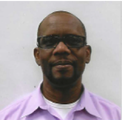
Dr. Roland P. Roberts is a Program Director with the National Science Foundation’s (NSF) Division of Biological Infrastructure (DBI) in the Directorate for Biological Sciences where he manages the National Ecological Observatory Network (NEON) and the Integrated Digitized Bio-collections (iDigBio) projects. In addition to program management, Dr. Roberts has a keen interest in working with underrepresented groups to increase their participation in STEM. A botanist by training, Dr. Roberts’ research focuses on the systematics of the tribe Astereae, Asteraceae (Sunflowers). During his 10-year tenure at Towson University, he taught several undergraduate and graduate courses, supervised numerous independent undergraduate projects, and served as a mentor for graduate research projects. His research and teaching efforts have been supported by grants from NIH (Bridges to the Baccalaureate), NSF (Research Collections), and by State and County agencies in Maryland. Dr. Roberts holds a doctoral degree in plant biology from Louisiana State University - Baton Rouge and an M.S. in biology from Texas State University at San Marcos.
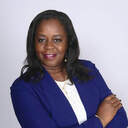
Diversity, Equity, and Inclusion Panel
Date/Time: Thursday, March 25, 12:00 PM-1:00 PM
Description - The Diversity committee luncheon panelists will speak on their experiences as a minority in the biology and the natural sciences discipline and provide strategies for faculty to provide comfortable learning environment for students as well as sharing coping and success skills to students.
Moderator:
Dr. Loretta Ovueraye, Vice Provost for Workforce Programs & Professional Learning at Miami Dade College
Date/Time: Thursday, March 25, 12:00 PM-1:00 PM
Description - The Diversity committee luncheon panelists will speak on their experiences as a minority in the biology and the natural sciences discipline and provide strategies for faculty to provide comfortable learning environment for students as well as sharing coping and success skills to students.
Moderator:
Dr. Loretta Ovueraye, Vice Provost for Workforce Programs & Professional Learning at Miami Dade College
Panelists:
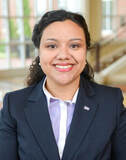
Veronica Segarra, Interim Chair and Assistant Professor of Biology, High Point University
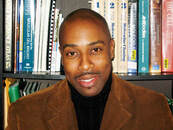
Selwyn A. Williams, Associate Professor, Biological Sciences B.S. Program Coordinator, Miami Dade College
Publishing With ASB Journals - Live Panels
Publish With Southeastern Naturalist Day/Time - Thursday March 25, 10:00 - 11:00 AM
Publish With eBIO Day/Time - Friday March 26, 10:00 - 11:00 AM
Description - Join representatives from ASB and Eagle Hill to discuss publishing opportunities in the official ASB Journals - Southeastern Naturalist and eBIO.
Moderators
Publish With Southeastern Naturalist Day/Time - Thursday March 25, 10:00 - 11:00 AM
Publish With eBIO Day/Time - Friday March 26, 10:00 - 11:00 AM
Description - Join representatives from ASB and Eagle Hill to discuss publishing opportunities in the official ASB Journals - Southeastern Naturalist and eBIO.
Moderators
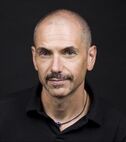
Dr. Ted Zerucha is a Professor in the Department of Biology at Appalachian State University in Boone, NC. Ted is also a member-at-large of the ASB Executive Committee and Editor of eBIO.
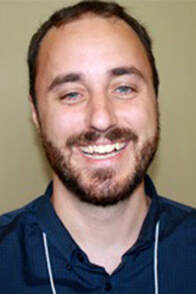
Dr. Matt Heard is an Assistant Professor in the Department of Biology at Belmont University in Nashville, TN. Matt is also a member-at-large of the ASB Executive Committee and on the editorial board of Southeastern Naturalist.
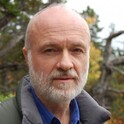
Panelists
Dr. Joerg-Henner Lotze is the Director of the Eagle Hill Institute in Steuben, Maine. The Institute actively promotes collaboration in education, research, and publishing by working together with scientists from the United States, Canada, Europe, and Latin America. Dr. Lotze is also the publisher of the Southeastern Naturalist and eBio.
Dr. Joerg-Henner Lotze is the Director of the Eagle Hill Institute in Steuben, Maine. The Institute actively promotes collaboration in education, research, and publishing by working together with scientists from the United States, Canada, Europe, and Latin America. Dr. Lotze is also the publisher of the Southeastern Naturalist and eBio.
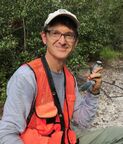
Dr. Karl Miller is an Associate Research Scientist with the Fish and Wildlife Conservation Department for the state of Florida. Dr. Miller is also the editor-in-chief of Southeastern Naturalist.
The Spring Wildflower Pilgrimage in the Great Smoky Mountains National Park
Day/Time - Friday, March 26 10:00-11:00 AM
Moderator: Dr. Joey Shaw
Description - The Spring Wildflower Pilgrimage began in 1951 and has been held annually in the Great Smoky Mountains National Park in April. It is a non-profit event that brings expert field biologists, conservationists, naturalists, and land managers together with the interested public to enjoy nature and educate on natural history, biology, ecology, conservation of natural resources, and land management. Although named the “Spring Wildflower Pilgrimage” from its inception, there have been many interdisciplinary programs. For example, during the second SWFP in 1952, there were 11 total programs and these included two birding and one photography program. The number of interdisciplinary programs has increased substantially to include: fungi, lichens, birds, mammals, insects, reptiles, nocturnal organisms, bones, parasites, ecology, fire ecology, biomes, woody plants, herbaceous plants, medicinal plants, mosses and liverworts, photography, herbarium museum tours, citizen science, astronomy, biological illustration, nature journaling, and more. Over the last 70 years, the GSMNP has endured ecological hardships from invasive insect outbreaks to fires and specialty programs have been variously integrated. In recent times, the Pilgrimage has had approximately 200 separate programs, or educational events, and brought nearly 1000 members of the public from 35 states and three to four countries into contact with ~120 experts in nature’s greatest classroom. Funds raised offset travel expenses of the leaders and support reduced or free admission for students and children. To maintain the continuity of the event, it was held virtually through iNaturalist in 2020 and once again fulfilled its mission – bringing the public into contact with experts in science and conservation. In 2018, ASB became a partner to the Pilgrimage and the outreach potential of this event greatly expanded. I will present the history and successes of this event, from notable people and places to setbacks and struggles, and ultimately present a vision for its long-term future.
Day/Time - Friday, March 26 10:00-11:00 AM
Moderator: Dr. Joey Shaw
Description - The Spring Wildflower Pilgrimage began in 1951 and has been held annually in the Great Smoky Mountains National Park in April. It is a non-profit event that brings expert field biologists, conservationists, naturalists, and land managers together with the interested public to enjoy nature and educate on natural history, biology, ecology, conservation of natural resources, and land management. Although named the “Spring Wildflower Pilgrimage” from its inception, there have been many interdisciplinary programs. For example, during the second SWFP in 1952, there were 11 total programs and these included two birding and one photography program. The number of interdisciplinary programs has increased substantially to include: fungi, lichens, birds, mammals, insects, reptiles, nocturnal organisms, bones, parasites, ecology, fire ecology, biomes, woody plants, herbaceous plants, medicinal plants, mosses and liverworts, photography, herbarium museum tours, citizen science, astronomy, biological illustration, nature journaling, and more. Over the last 70 years, the GSMNP has endured ecological hardships from invasive insect outbreaks to fires and specialty programs have been variously integrated. In recent times, the Pilgrimage has had approximately 200 separate programs, or educational events, and brought nearly 1000 members of the public from 35 states and three to four countries into contact with ~120 experts in nature’s greatest classroom. Funds raised offset travel expenses of the leaders and support reduced or free admission for students and children. To maintain the continuity of the event, it was held virtually through iNaturalist in 2020 and once again fulfilled its mission – bringing the public into contact with experts in science and conservation. In 2018, ASB became a partner to the Pilgrimage and the outreach potential of this event greatly expanded. I will present the history and successes of this event, from notable people and places to setbacks and struggles, and ultimately present a vision for its long-term future.
Workshops
How to use digital escape rooms to supplement online lab practicals and help promote student active learning
Day/Time - Thursday March 25, 2:00 - 3:00 PM
Organizer - Joni Criswell, Anderson University
Description - Have you been frustrated by the digital resources available for online lab learning especially for labs covering anatomy based topics? Do you find that there is either too much/too little information in these digital resources or student frustration when trying to use these resources? This workshop will focus on how to use free software to create custom digital escape rooms to help supplement online lab practicals and/or promote student active learning via online meetings (i.e. Zoom). This session will also include how to incorporate the digital escape rooms into either Google forms and/or a course platform (i.e. Canvas).
Virtual Research: Using public data for undergraduate research
Day/Time - Friday March 26, 8:00 - 9:00 AM
Organizer – Lindsay Rhodes, Florida Gulf Coast University
Description - The current pandemic environment has made bench research more difficult, particularly in the undergraduate setting. However, there are a wide variety of published data sets that hold a wealth of information and can be used to answer many more questions - if you know where to find it and how to use it. Using this data doesn't have to require a degree in bioinformatics! This workshop will explore the types of information that are available, where to find useful data sets, and how to use that information to answer scientific questions. Further, participants will learn how to develop questions that could form the basis of future student projects. We will be using cancer data as an example to walk through the process.
Symposia
Integrating virtual mentoring and professional development experiences with field-based summer undergraduate research
Day/Time - Thursday March 25, 8:00 - 10:00 AM
Organizer - David Brown, Eastern Kentucky University
Description - This symposium explores best practices and provides examples of virtual training experiences that augment research experiences when field interactions are limited. Virtual activities can include team building, professional development workshops, and panel discussions with professionals. A variety of platforms can be used to build and maintain training relationships, including video-conferencing, group chats, and other social media. The presenters in this symposium overcame substantial challenges to administer or participate in undergraduate research programs during the Covid-19 pandemic. They will share mentoring and training approaches that were effective in remote training situations and that either worked better or as well as in-person activities. The symposium will also explore how adopting virtual training practices can enhance participation of groups underrepresented in the sciences by creating opportunities that would otherwise not be available, regardless of the reason for limited in person interactions.
A CURE for your Curriculum: Implementing Course-embedded Undergraduate Research (CUREs) into your Curriculum
Day/Time - Friday March 26, 9:00 AM - 2:30 PM
Organizer – Judy Awong-Taylor, [email protected] , Georgia Gwinnett College
Description – How effective are Course-embedded Undergraduate Research Experiences (CUREs)? There is a growing body of evidence that shows a link between student research and lasting learning, and that research experiences increase students’ interest in careers in STEM (National Research Council 2003; Lopatto 2007; Lopatto 2009; Laursen et al. 2010). Lopatto (2007) points out that even a short immersion experience in undergraduate research is enough to effect long-term gains in student motivation for learning, independence, and an understanding of science. These experiences also play a significant role in alumni getting into graduate school, being employed, or both (Schmitz and Havholm 2015). This symposium will provide information and activities on how to implement effective CUREs into the curriculum. The symposium will feature speakers from Georgia Gwinnett College, Clayton State University, Savannah State University, and University of Louisiana at Monroe who have designed and implemented CUREs in biology courses, including introductory biology courses. The symposium will: introduce key components (STEM skills, assessment, etc.) of effective CUREs; include interactive group discussions; and a faculty panel that will discuss successes and challenges to developing and implementing CUREs.
Field Trips - On Demand
Longleaf Pine Savannah, Lake Thoreau Environmental Center, Hattiesburg, MS
Organizer – Mac Alford, Micheal Davis, and William McFarland, The University of Southern Mississippi, Hattiesburg, MS
Description – The Lake Thoreau Environmental Center consists of two adjacent compartments, one given to the University of Southern Mississippi over 100 years ago by a railroad company following timber harvest of the virgin longleaf pine and the other given to the University by a retired professor who valued nature. The two parts were joined together, the biology faculty were tasked to manage the property, and a building was constructed for education and to house the herbarium and ichthyological collection. Our tour will cover the second-growth longleaf pine savannah, which has been restored with regular fire and for which a flora was recently published.
Quail Forever
Organizer - Miranda Gulsby
Description - Quail Forever is dedicated to the conservation of quail, pheasants and other wildlife through habitat improvements, public awareness, education, and land management policies and programs.
How to use digital escape rooms to supplement online lab practicals and help promote student active learning
Day/Time - Thursday March 25, 2:00 - 3:00 PM
Organizer - Joni Criswell, Anderson University
Description - Have you been frustrated by the digital resources available for online lab learning especially for labs covering anatomy based topics? Do you find that there is either too much/too little information in these digital resources or student frustration when trying to use these resources? This workshop will focus on how to use free software to create custom digital escape rooms to help supplement online lab practicals and/or promote student active learning via online meetings (i.e. Zoom). This session will also include how to incorporate the digital escape rooms into either Google forms and/or a course platform (i.e. Canvas).
Virtual Research: Using public data for undergraduate research
Day/Time - Friday March 26, 8:00 - 9:00 AM
Organizer – Lindsay Rhodes, Florida Gulf Coast University
Description - The current pandemic environment has made bench research more difficult, particularly in the undergraduate setting. However, there are a wide variety of published data sets that hold a wealth of information and can be used to answer many more questions - if you know where to find it and how to use it. Using this data doesn't have to require a degree in bioinformatics! This workshop will explore the types of information that are available, where to find useful data sets, and how to use that information to answer scientific questions. Further, participants will learn how to develop questions that could form the basis of future student projects. We will be using cancer data as an example to walk through the process.
Symposia
Integrating virtual mentoring and professional development experiences with field-based summer undergraduate research
Day/Time - Thursday March 25, 8:00 - 10:00 AM
Organizer - David Brown, Eastern Kentucky University
Description - This symposium explores best practices and provides examples of virtual training experiences that augment research experiences when field interactions are limited. Virtual activities can include team building, professional development workshops, and panel discussions with professionals. A variety of platforms can be used to build and maintain training relationships, including video-conferencing, group chats, and other social media. The presenters in this symposium overcame substantial challenges to administer or participate in undergraduate research programs during the Covid-19 pandemic. They will share mentoring and training approaches that were effective in remote training situations and that either worked better or as well as in-person activities. The symposium will also explore how adopting virtual training practices can enhance participation of groups underrepresented in the sciences by creating opportunities that would otherwise not be available, regardless of the reason for limited in person interactions.
A CURE for your Curriculum: Implementing Course-embedded Undergraduate Research (CUREs) into your Curriculum
Day/Time - Friday March 26, 9:00 AM - 2:30 PM
Organizer – Judy Awong-Taylor, [email protected] , Georgia Gwinnett College
Description – How effective are Course-embedded Undergraduate Research Experiences (CUREs)? There is a growing body of evidence that shows a link between student research and lasting learning, and that research experiences increase students’ interest in careers in STEM (National Research Council 2003; Lopatto 2007; Lopatto 2009; Laursen et al. 2010). Lopatto (2007) points out that even a short immersion experience in undergraduate research is enough to effect long-term gains in student motivation for learning, independence, and an understanding of science. These experiences also play a significant role in alumni getting into graduate school, being employed, or both (Schmitz and Havholm 2015). This symposium will provide information and activities on how to implement effective CUREs into the curriculum. The symposium will feature speakers from Georgia Gwinnett College, Clayton State University, Savannah State University, and University of Louisiana at Monroe who have designed and implemented CUREs in biology courses, including introductory biology courses. The symposium will: introduce key components (STEM skills, assessment, etc.) of effective CUREs; include interactive group discussions; and a faculty panel that will discuss successes and challenges to developing and implementing CUREs.
Field Trips - On Demand
Longleaf Pine Savannah, Lake Thoreau Environmental Center, Hattiesburg, MS
Organizer – Mac Alford, Micheal Davis, and William McFarland, The University of Southern Mississippi, Hattiesburg, MS
Description – The Lake Thoreau Environmental Center consists of two adjacent compartments, one given to the University of Southern Mississippi over 100 years ago by a railroad company following timber harvest of the virgin longleaf pine and the other given to the University by a retired professor who valued nature. The two parts were joined together, the biology faculty were tasked to manage the property, and a building was constructed for education and to house the herbarium and ichthyological collection. Our tour will cover the second-growth longleaf pine savannah, which has been restored with regular fire and for which a flora was recently published.
Quail Forever
Organizer - Miranda Gulsby
Description - Quail Forever is dedicated to the conservation of quail, pheasants and other wildlife through habitat improvements, public awareness, education, and land management policies and programs.
